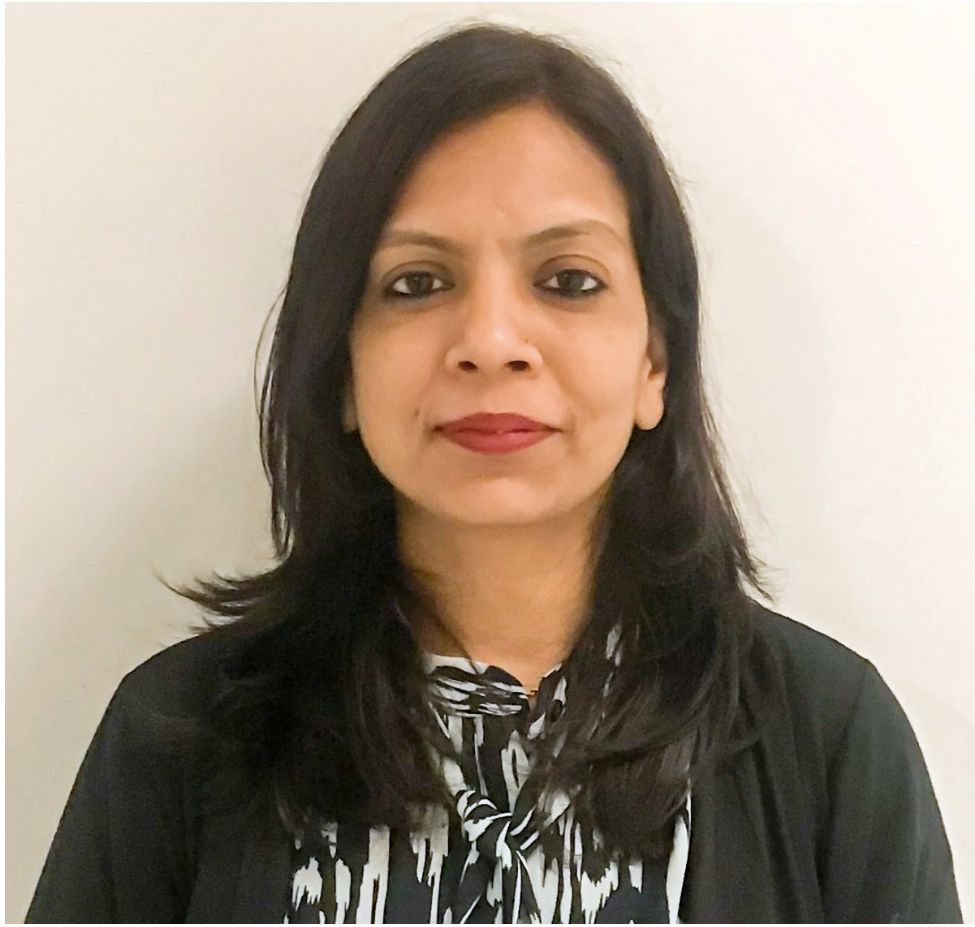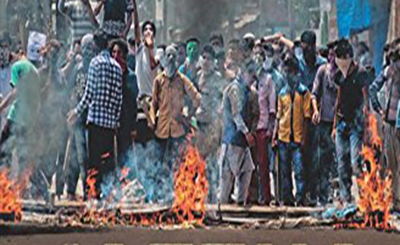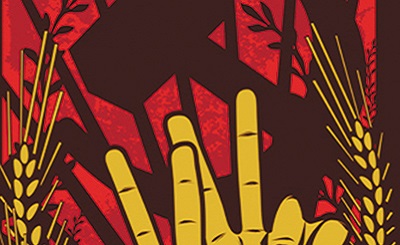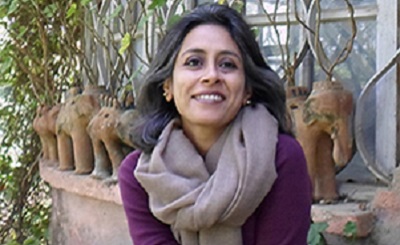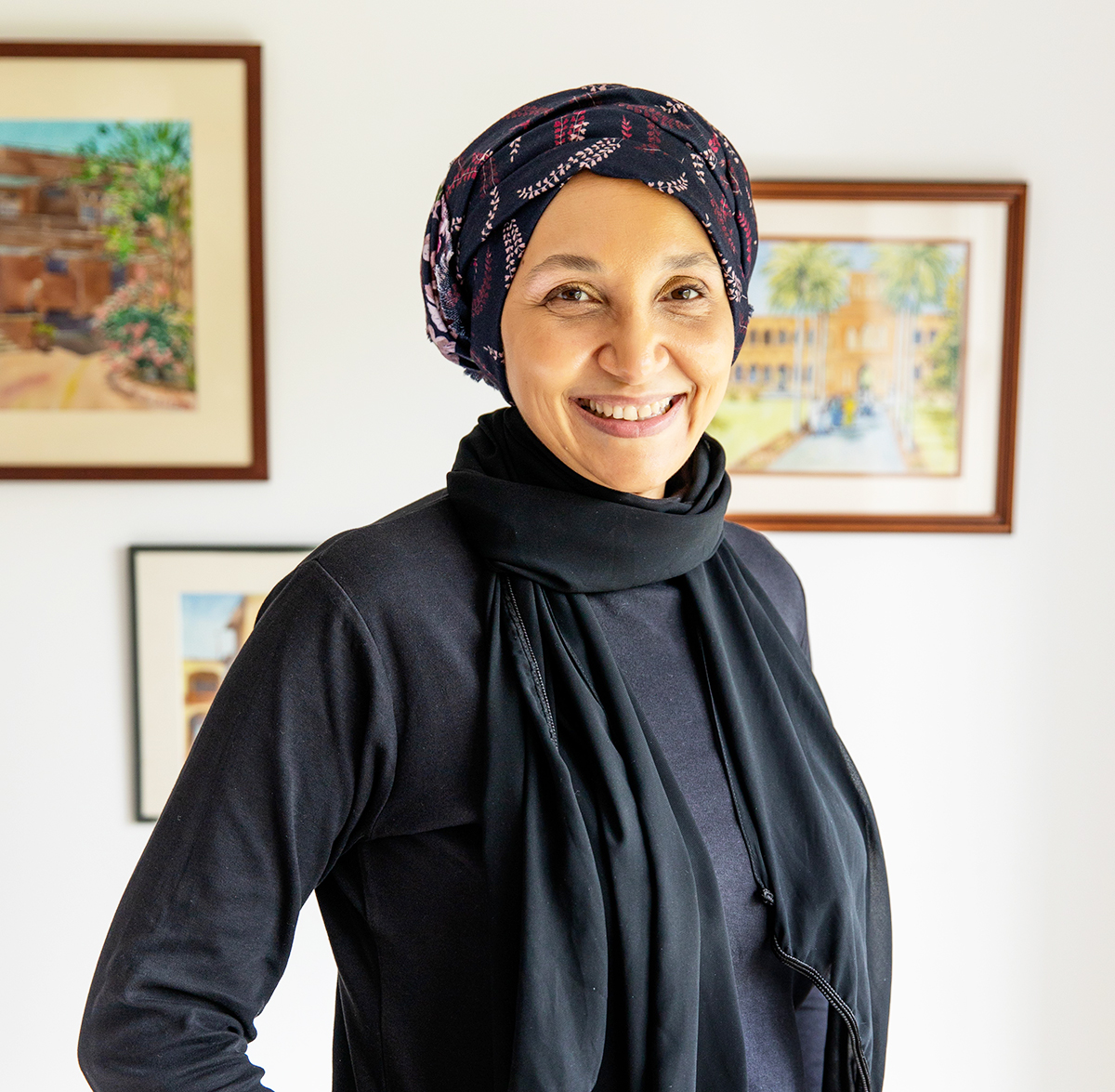
Aberdeen-based writer Leila Aboulela. Photo: Judy Laing
In her fifth novel Bird Summons, Aberdeen-based writer Leila Aboulela, one of the most significant writers from Africa, charts the journeys of three women, and their lives that stretch out to loyalties in different continents
The fulcrum of Aberdeen-based Scottish writer Leila Aboulela’s fiction has been faith’s frequent interactions, and the inevitable collisions, with love, femininity and culture. In her fifth novel, Bird Summons (Weidenfeld & Nicolson, UK, 2019), Aboulela, 55, among one of the most significant writers from Africa, charts the lives and journeys — both literal and metaphorical — of three women, and their unusual encounter with a mythical creature, in lyrical, intensely evocative prose. The novel follows the story-within-the-story narrative, told in third person, and explores the various ways faith and culture determine the lives and destinies of these women.
Aboulela was born in Cairo and brought up in Khartoum, the capital of Sudan. Her other novels include The Translator (1999), Minaret (2005) and Lyrics Alley (2010) — all of which were longlisted for the Orange Prize — and The Kindness of Enemies (2015). Lyrics Alley also won Novel of the Year at the Scottish Book Awards and was shortlisted for the Commonwealth Writers’ Prize. Aboulela was awarded the Caine Prize for her short story “The Museum”, which is included in her collection of short stories, Elsewhere, Home (2018), winner of the Saltire Fiction Book of the Year. The collection captures the alienation and sorrow of immigrants who have left home and see themselves torn between cultures, countries and continents — Africa, Britain and Middle East.
In Bird Summons, the multilayered lives of three women — Salma, Moni and Iman — unfold, as they hit the road; they are heading for the Scottish highlands to pay homage to Lady Evelyn Cobbold, the first British woman convert to Islam to perform the pilgrimage to Mecca. Salma, born in Egypt and settled in Scotland after marrying David and burdened with bringing up their children, is a masseuse who has made her name, but still finds herself trying to belong in a foreign country. When she receives a call from her old boyfriend, Amir, she is in a dilemma: Must she leave and go back to him, risking the life she had toiled to build? Moni has a specially-abled son, Adam, and caring for him for five years has brought her to an edge. Her husband, Murtada, is in Saudi Arabia, asks her to join him, but Moni has apprehensions that their son will not get the kind of medical support he gets in Scotland. Iman, in her late twenties and the youngest of the three, is into her third unhappy marriage and longs for love and freedom.
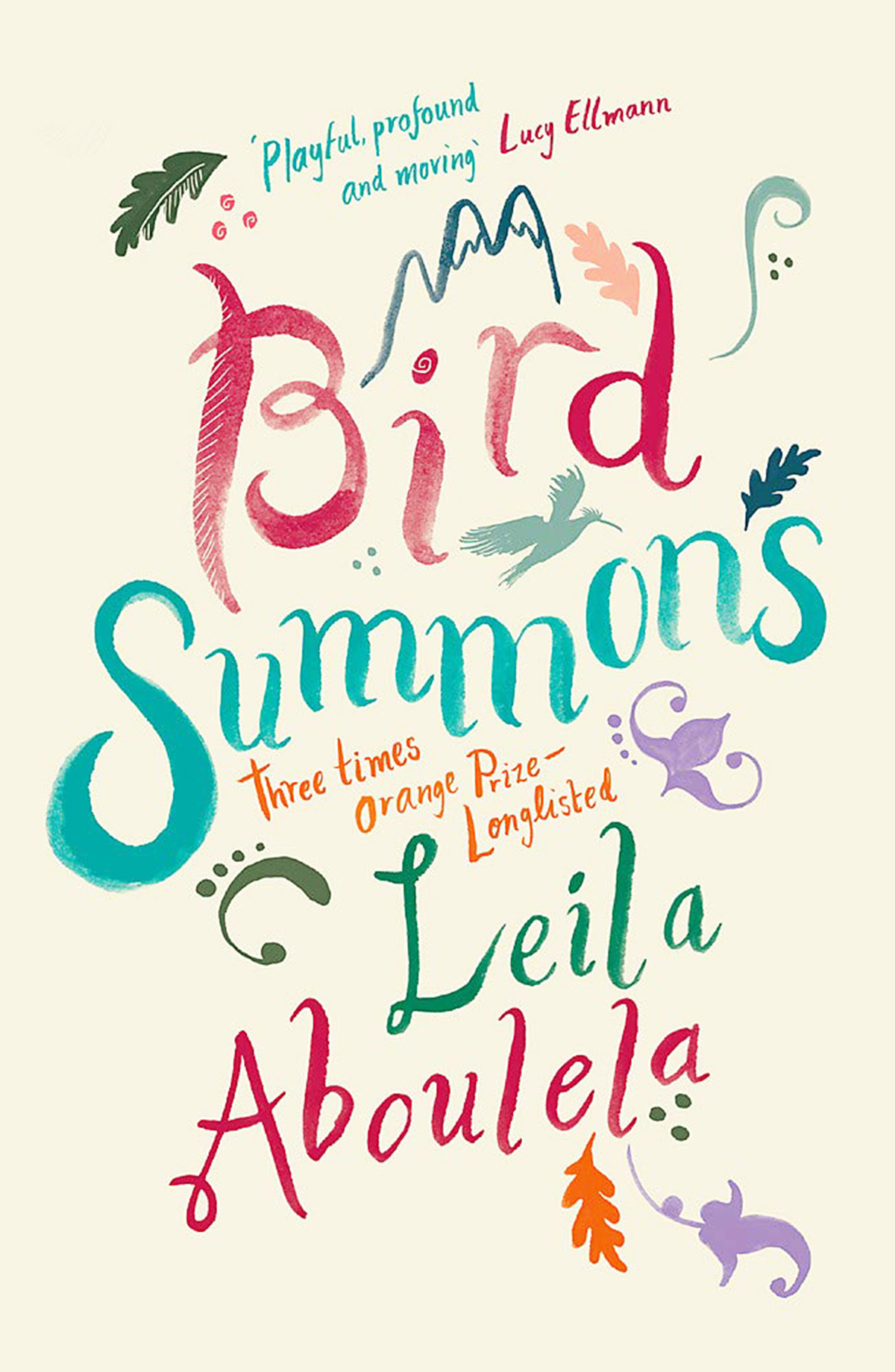
When they reach a remote hillside in Inverness, the women are visited by the hoopoe, a sacred bird who tells fables from Muslim literature and Celtic folklore. “Disappointment is around every corner,” the hoopoe tells Iman the second time it visits her. “The way forward is a circle. The other side is different only because it faces the opposite direction. If everyone could see the end of Time, their hair would turn white in fright,” says the wise bird. Hoopoe just keeps telling stories, one after the other, “as if all the answers were inside the narrative, all the guidance embedded in the logic.”
In her writer’s statement to britishcouncil.org, Aboulela states: “When I write I experience relief and satisfaction that what occupies my mind, what fascinates and disturbs me, is made legitimate by the shape and tension of a story. I want to show the psychology, the state of mind and the emotions of a person who has faith. I am interested in going deep, not just looking at ‘Muslim’ as a cultural or political identity but something close to the centre, something that transcends but doesn’t deny gender, nationality, class and race. I write fiction that reflects Islamic logic; fictional worlds where cause and effect are governed by Muslim rationale. However, my characters do not necessarily behave as ‘good’ Muslims; they are not ideals or role models. They are, as I see them to be, flawed characters trying to practise their faith or make sense of God’s will, in difficult circumstances.”
In Bird Summons, Aboulela adheres to her avowed objective as a writer; it’s a novel deeply enmeshed in the issues of race, gender, nationality and religion. In an interview to The Punch Magazine, the author says she sees the novel as a contemplation on the presence of Islam in Britain. Her initial image of the novel, she says, was the three women in the car. “As they bicker and banter on the journey, the tensions between them grow and through modern methods of communication their lives stretch out to loyalties in different continents,” she says, adding that social media has revolutionised the immigrant experience. “No longer cut off, no longer out of the picture, no longer difficult to reach, immigrants can stay connected to their home countries at very little expense,” she says.
Excerpts from the interview:
Shireen Quadri: At the heart of Bird Summons is the journey, both physical and spiritual, of three women to the Scottish Islands. It’s not merely a holiday, but also an escape wherein each of them are looking for certain answers. You write in the author’s note that you wanted to explore the extent to which a journey could change these three women. How does this journey prove to be transformative for each of them?
Leila Aboulela: Salma, Moni and Iman are weighed down by their egos, though it might not be apparent to them at first. Like most of us, they see themselves as good people, justified in the positions and decisions they have taken. Salma has no intention of having an extramarital affair with Amir and feels safe flirting with him long-distance. Moni believes she is a wonderful mother, neglecting her husband to care for their disabled son. And Iman feels justified in rebelling from the constraints of her femininity. The journey to the Scottish Highlands increases their self-awareness and sense of agency. Slowly, and in stages, they start to face their flaws and also their misconceptions about themselves and each other. Their journey is a spiritual experience. And I wanted to present it in a tangible yet surreal/magical way. Away from the city (which represents restrictions, formality and rituals both religious and secular), the spiritual freedom that the women encounter is vast and beyond control.
Shireen Quadri: At a deeper level, the road trip also entails the women’s journeys into themselves as it gives them an avenue to look at their lives, love, loyalty, sacrifice and faith, and confront their hopes and fears. When you started working on the novel, did you have these broader themes on your mind?
Leila Aboulela: When I started work on Bird Summons I had just completed my historical novel The Kindness of Enemies which was set in 19th-century Russia. I remember feeling eager and somewhat relieved to be writing a modern novel in which I could feature the latest technological developments like Facebook and WhatsApp. I think that social media has revolutionised the immigrant experience. No longer cut off, no longer out of the picture, no longer difficult to reach, immigrants can stay connected to their home countries at very little expense. My first initial image of the novel was the three women in the car. As they bicker and banter on the journey, the tensions between them grow and through modern methods of communication their lives stretch out to loyalties in different continents. I also knew that they would stay at the monastery (which had been converted into a holiday resort) and that they would have a ‘’spiritual experience.’’ I didn’t know what it would be but I knew that it would connect somehow to their real-life dilemmas. In writing the novel, I was also heading out on the journey with them. Not sure what was going to happen. I knew though that with each passing day, the holiday resort becomes disturbing and then foreboding. What was once charming becomes smoky with menace — and there is an urgent need for them to get away.
Shireen Quadri: Though the three women are disparate in their conditions, they are united in their quest for love, happiness, contentment — and independence. And all three are immigrants navigating a land away from the places they once belonged to. In what ways are their lives affected by displacement, by having been uprooted from their culture and customs? How do you see them dealing with issues of identity and belonging?
Leila Aboulela: Ironically it is Salma, the most successful of the three, the one married to a British man, who is most conscious of feeling out of place. Her children are growing up and becoming more and more British, less and less a part of her. Early in the novel we see that, ‘’Sometimes she would walk into a room to find them with David and she would have no clue what they were saying even though she could understand every single word. She would then feel that they were his children and not hers. She was the outsider, the foreign wife, and they were one unit.’’ On the other hand, Moni and Iman are in a position of obvious gratitude. Moni because of the treatment her disabled son is getting from the National Health Service and Iman because she is a refugee from the Syrian civil war. The attempt of the women to visit Lady Evelyn’s grave is a way of connecting more closely to Britain. Because Lady Evelyn was a Muslim like them, they see her as one of them and it gives them a sense of belonging.
Shireen Quadri: In your other novels and stories, interracial relationships have been a common motif. Do you see this novel as a collision of love and religion or faith and culture?
Leila Aboulela: I see it actually as a contemplation on the presence of Islam in Britain. How the process is coming from immigration (economic and refugee) as well as a colonial past. How Islam is a continuation of Christianity. How women are vital in this process. And how individual human flaws and weaknesses are shaping this narrative. Certainly culture is both a comfort to the women as well as a handicap. They come from rich cultural traditions at the same time they are held back from integrating. This is due to a hostile political climate (only hinted at in the novel) and the fact that Britain (unlike say the US or Australia) is not built on immigration.
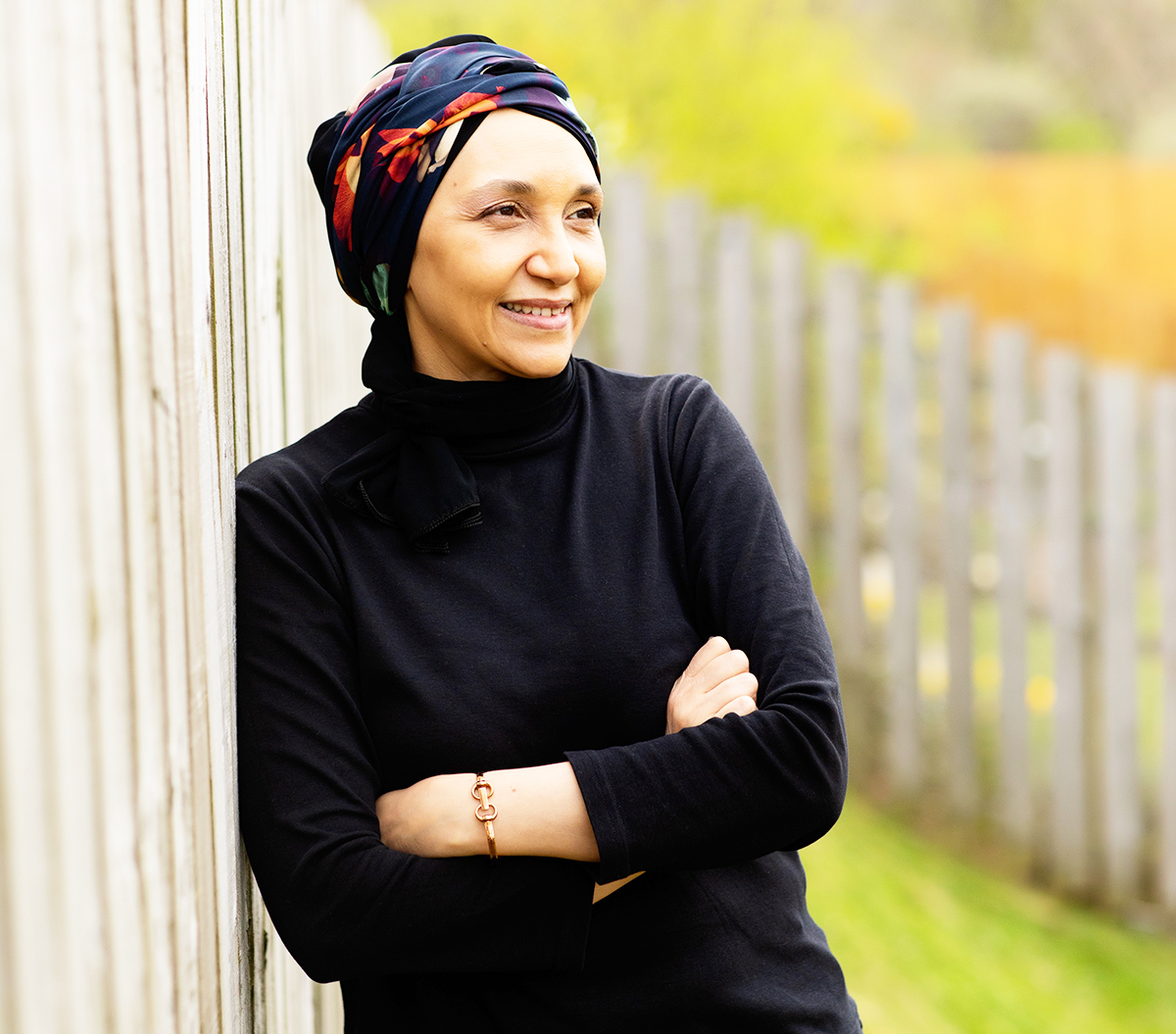
Shireen Quadri: The women plan the trip to the highlands to pay homage to Lady Evelyn Cobbold, the first British woman convert to Islam (changing her name to Zainab Cobbold) perform the pilgrimage to Mecca. How does Cobbold’s life and choices have a resonance in the life of your characters in this novel, especially Salma?
Leila Aboulela: Lady Evelyn Cobbold was a convert to Islam. This is the main reason that the characters are attracted to her as well as the obvious fact that she was a woman. She was also more independent than they are, stronger, more confident, more able. She was a Scottish aristocrat and therefore vastly more entitled than they would ever be. She represents the figure of a leader which is something that they need. In general, leadership is certainly missing and badly needed within the Muslim community in the UK. Lady Evelyn was able to transform her life and (as a lone European woman undertaking the pilgrimage to Mecca) conquer uncharted territories. Salma, the leader of the group, the most physically strong, sees herself and her independence in the character of Lady Evelyn. That is why she is the one most keen to reach her grave.
Shireen Quadri: On a remote hillside in Inverness, each of the three women are visited by the hoopoe, a sacred bird named after the one in Quran, who brings to them fables from Muslim and Celtic literature that compel them to question the balance between faith and femininity, love, loyalty and sacrifice. In what ways did Attar’s fable, The Conference of the Birds, inform the Hoopoe in the novel? How do you see Hoopoe changing their lives by being their spiritual mentor of sorts?
Leila Aboulela: In The Conference of the Birds, the birds of the world gather to embark on a journey to find their leader. It is the Hoopoe who is their guide and the one who warns them of the dangers of the journey as well as the need for it. The Hoopoe in classical Sufi literature is the figure of the spiritual/religious teacher who imparts wisdom and guidance. He performs the same role in Bird Summons through the fables he tells and in how he guides the women at the end of the novel when they become lost in the forest. However, the Hoopoe’s powers are limited. The women must make their own choices.
Shireen Quadri: Did you want this novel to be at once a work of social and magical realism, steeped in Middle Eastern folktale and Celtic myth?
Leila Aboulela: In my first draft of the novel, the road trip occupied a longer part. So there was more social realism, more of the three women clashing during the journey — the car breaks down, they spend a night in a B&B etc. My editor, though, felt that this was too long and that I should get the women to the monastery as soon as I can. So I ended up deleting a couple of early chapters! Once the women reached the monastery, I spent considerable time researching Scottish folktales and re-reading the Middle Eastern ones. I also wanted to incorporate the story within a story technique associated with traditional storytelling such as the One Thousand and One Nights. The Hoopoe’s tales contain stories within stories, but I was careful to structure them in a way so that the reader does not lose her way.
Shireen Quadri: It’s a lyrical and lucidly written story. Do you have to work a lot on the form, structure and the sounds of your sentences? Could you name some authors whose works have deeply influenced you?
Leila Aboulela: In general, my style has been influenced by Jean Rhys. I love her simple, lucid prose which carries a lot of emotion. In particular, Bird Summons was influenced by Doris Lessing’s Memoirs of a Survivor (1974) which is set in a post-apocalyptic England. As the physical world disintegrates around the main character, the walls inside the apartment dissolve and the woman is able to enter evolving visionary worlds of extraordinary vividness where the past and future come together.
Shireen Quadri: Who are some of the immigrant writers, both established and emerging, in the UK whose works you admire?
Leila Aboulela: From the older generation Abdulrazak Gurnah, Ben Okri and Kazuo Ishiguro. Also the Nigerian writer Buchi Emecheta and the Egyptian writer Ahdaf Soueif. Meera Syal’s novel Anita and Me (1996) is brilliant in conveying the life of a young child growing up in an immigrant family. Jhumpa Lahiri writes about the US experience, and I love her work. From the younger generation, I admire Hisham Matar, Sanjeev Sahota and Robin Yassin-Kassab. Jennifer Makumbi’s new collection of short stories Manchester Happened about Ugandans in Britain is brilliant. She is a hugely talented author.
Shireen Quadri: What are you currently working on?
Leila Aboulela: I’m working on a historical novel on the relationship between Scotland and Sudan. I’ve been researching the idea for some time now and because of the immensity of the research I’ve decided to split up the time periods and embark on a trilogy rather than a single novel! It feels like a huge commitment but I’m looking forward to it.
More from The Byword
Comments
*Comments will be moderated



